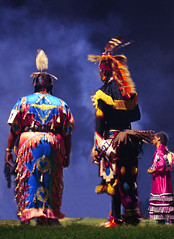 I’ve been thinking about culture incessantly as I have been getting situated in my new role as the site director at the BUILD Peninsula site.
I’ve been thinking about culture incessantly as I have been getting situated in my new role as the site director at the BUILD Peninsula site.
The timing could not have been more appropriate. Over the last three years I’ve spent my summers designing and executing summer business boot camps for our sophomores and juniors with the goal of inculcating them to what I called the “Incubator culture.” Now as the site director, I have the distinct opportunity to extend that inculcation to my staff, so that our entire site–students, paid staff, volunteer mentors, and visitors–can tangibly feel our culture when they walk through our front door.
On a very basic level, the culture of our site mirrors that of a tribe. Yes, I’m talking about “tribe” as in a group of people who share a common ancestry, or a clan forming a close-knit community under a defined leader, chief, or ruling council. When you hear “tribe,” visions of Native Americans traveling together in a banded group under a chief leader probably come to mind. Well, if you think about it, this is where humanity stems from. Humans (homo sapiens) have been around for 250,000 years, and our species only really began to flourish when early humans learned to band together in tribes for survival. Embedded deep in our ancestral roots, we all come from tribes, and, in contrast, the notion of the “modern civilization” has only been around for the last couple of millenia.
As humans entered the era of modernity after the industrial revolution, and more and more people populated large urban areas, tribal elements became an antiquated idea of the past. But did they disappear? I think they were just translated into modern versions of what we call organizational culture. The four basic elements of this culture are simply rules, rewards, routines, and rituals. These four R’s can be found scattered all over the place in our homes, at our schools, our corporations, places of worship, and even our media.
At today’s E2 Boot Camp, we practiced a ritual, which we had never done before, and it all started with a hunch. Tribes honor their wise elders and ancestors–think back to Native Americans and their beliefs in ancestral spirits and the leadership of their chieftans. In modern translation, corporations do the same exact thing. Instead of invoking ancestral spirits, founders and corporate leaders (presidents, CEO’s) act as the organization’s wise elders and ancestors. Have you wondered why you can usually find a picture of their revered founder smack dab in the middle of a corporate lobby?
In translation to our youth-serving organization, there’s a lot of value for our students to have that same tribal sense of leadership and respect for their elders. At BUILD today, our “elder” is our young Founder and CEO Suzanne. She stopped by our Boot Camp to formally welcome our students into our Incubator program and to answer their questions about our organization’s future. What Suzanne didn’t know was that the students had planned to honor her for all of her hard work, and you can watch a snippet of our “ritual” in the youtube video below or at this link.
In fact the entire four-day Business Boot Camp for our sophomores is one big ritual to prepare them for the rigor and routines during the school year. And hopefully the addition of this new ritual of honoring our leaders can become a staple in our culture.
What rituals do your organizations perform, practice, or celebrate?
And as for the rest of the “R’s,” I’ll keep the conversation going on as culture seems to be the hot topic right now. Stay tuned.